Robyn Faith Walsh's Blog, page 7
August 28, 2022
Upcoming: "Argumentam ad Lunar"

I’m very pleased to be giving The Nadine Beacham and Charlton F. Hall Sr. Visiting Lectureship in New Testament and Early Christianity at the University of South Carolina in October.
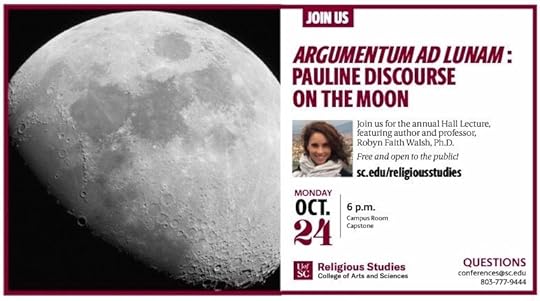 Hall Lecture Promotional Flyer Hall Lecture_digital screen_landscape[30].pdf 721 KB .a{fill:none;stroke:currentColor;stroke-linecap:round;stroke-linejoin:round;stroke-width:1.5px;}download-circle
Hall Lecture Promotional Flyer Hall Lecture_digital screen_landscape[30].pdf 721 KB .a{fill:none;stroke:currentColor;stroke-linecap:round;stroke-linejoin:round;stroke-width:1.5px;}download-circle Here is a description of the lectureship:
The Nadine Beacham and Charlton F. Hall, Sr. Visiting Lectureship brings together the brightest scholars of New Testament and Early Christianity, the general public and the local church community to inspire the study of Early Christian literature and history, and to foster reflection on the moral issues facing our nation. This lecture was established by Columbia businessman Charlton F. Hall, Jr., in memory of his father, Charlton F. Hall, Sr., and his mother Nadine Beacham Hall. In the words of Charlton F. Hall, Jr., “By annually bringing to the university community a well-known religious leader or scholar, it is my hope to enhance the moral and spiritual well-being of the individual and promote peace and good will among men.” This lecture is free and open to the public.Lectures and Trips - College of Arts and Sciences | University of South Carolina
 University of South Carolina Home Search University of South Carolina University of South Carolina Navigation
University of South Carolina Home Search University of South Carolina University of South Carolina Navigation
Upcoming MythVision Appearance: "Were the Gospels Authored by Jesus' Disciples?"

I'll be appearing on MythVision again to discuss, with Jonathan Sheffield, the authorship of the Gospels. If you'd like to tune in, our debate will occur live on MythVision's YouTube page on 16 September 2022.
If you'd like to review my previous appearances on MythVision, you can find them here:
Epistles: The Origins of the Gospels
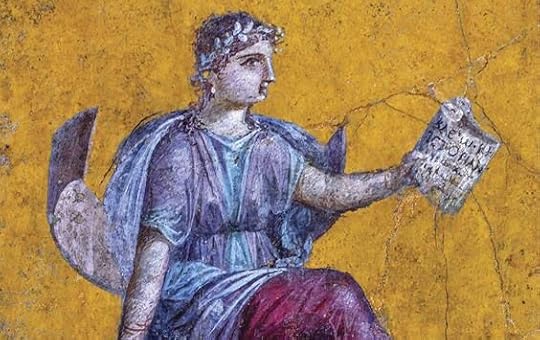
Biblical Archaeology Review has published a feature on my book, The Origins of Early Christian Literature. Please see this latest piece on their website:
"Epistles: The Origins of the Gospels"
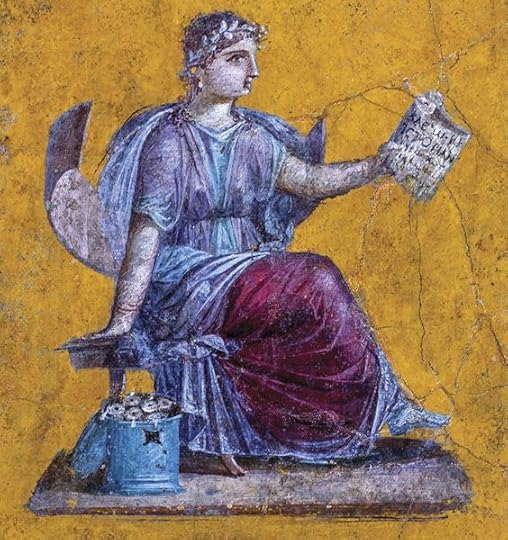
August 17, 2022
New Publication: "Of Dualisms and Döppelgangers"

I am excited to announce that I have a new chapter in the forthcoming volume Key Categories in the Study of Religion: Contexts and Critiques (Equinox Publishing), edited by Rebekka King. Here's the summary for my chapter, "Of Dualisms and Döppelgangers: Mapping Ancient Minds and Bodies in Religious Studies":
Reflecting on the work of Richard Newton, this chapter critiques certain racist and nationalist viewpoints inherited from Romanticism that persist in the study of Religion— among these are speculative theories on so-called Aryan history, the origins of language, and the moral-psychology of the ancients. Essential to this discussion is a reflection on, as Newton describes, “how we narrate… intellectual heritage” and expertise, from the scholars and research we cite to the adaptation of speculative theories that can come to govern our everyday lives and assumptions.

June 15, 2022
The Next Quest for the Historical Jesus
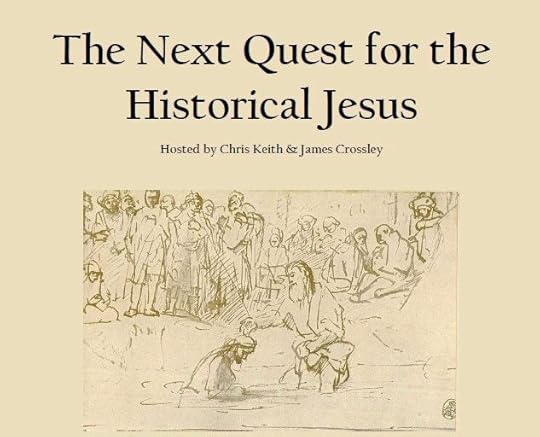
I’m excited to be joining a terrific group of scholars in the UK next month for a seminar on The Next Quest for the Historical Jesus!
Upcoming events both livestreamed on the Enoch Seminar’s Facebook page:
For updates and further details, see the Facebook pages of the Enoch Seminar and the Centre for the Critical Study of Apocalyptic and Millenarian Movements (CenSAMM). To register, go to the CenSAMM page.
Featuring: Giovanni Bazzana, James Crossley, Tucker Ferda, Paula Fredriksen, Deane Galbraith, Mark Goodacre, Meghan Henning, Nathan Johnson, Brandon Massey, Chris Keith, John Kloppenborg, Halvor Moxnes, Robert Myles, Gideon Wongi Park, Janelle Peters, Taylor Petrey, Adele Reinhartz, Rafael Rodriguez, Sarah Rollens, Nathan Shedd, Mitzi Smith, Joan Taylor, Matthew Thiessen, Robyn Walsh, Matthew Whitlock, Sean Winter, Stephen Young.

MythVision: What the heck is the Apostle Paul up to?
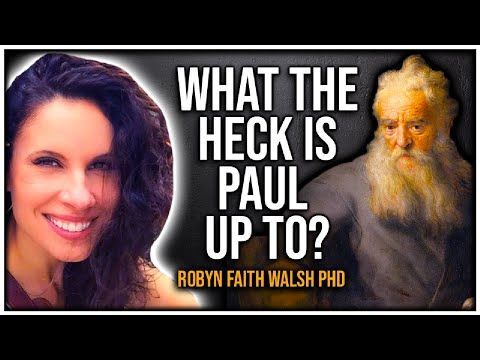
I recently visited Derek Lambert on Mythvision again for a chat about Paul the Apostle. This was a wide-ranging but, as always, fun conversation—check it out!!!
May 31, 2022
Did the Greco-Roman Elite Class Write the Gospels?

Last week, I appeared on the History Valley podcast with Jacob Berman. Here are the show notes for this episode:
Conventional approaches to the Synoptic gospels argue that the gospel authors acted as literate spokespersons for their religious communities. Whether described as documenting intra-group 'oral traditions' or preserving the collective perspectives of their fellow Christ-followers, these writers are treated as something akin to the Romantic poet speaking for their Volk - a questionable framework inherited from nineteenth-century German Romanticism. In this book, Robyn Faith Walsh argues that the Synoptic gospels were written by elite cultural producers working within a dynamic cadre of literate specialists, including persons who may or may not have been professed Christians. Comparing a range of ancient literature, her ground-breaking study demonstrates that the gospels are creative works produced by educated elites interested in Judean teachings, practices, and paradoxographical subjects in the aftermath of the Jewish War and in dialogue with the literature of their age. Walsh's study thus bridges the artificial divide between research on the Synoptic gospels and Classics.
Thanks to Jacob for having me on!
April 6, 2022
Featured in QEP Newsletter: Is Star Wars a Religion?
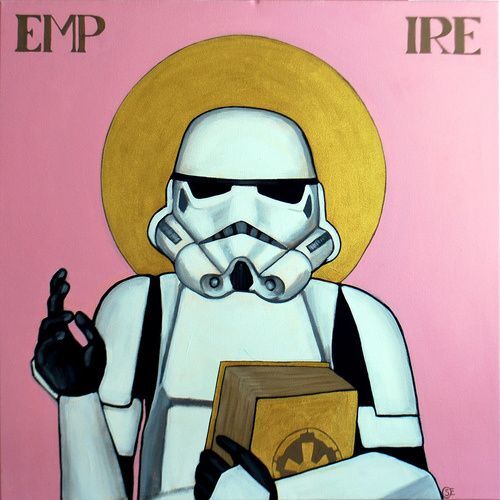
The University of Miami's Quality Enhancement Plan (QEP) has featured one of my courses in their most recent newsletter. QEP seeks to promote learning through discussion and dialogue, a mission that very much aligns with the goals of REL 369: Is Star Wars a Religion?
Please check out the QEP's full April newsletter for information about the course and about other initiatives and events governed by the QEP.
If interested, you can also check out the interviews I conducted for my podcast "Is Star Wars a Religion?"
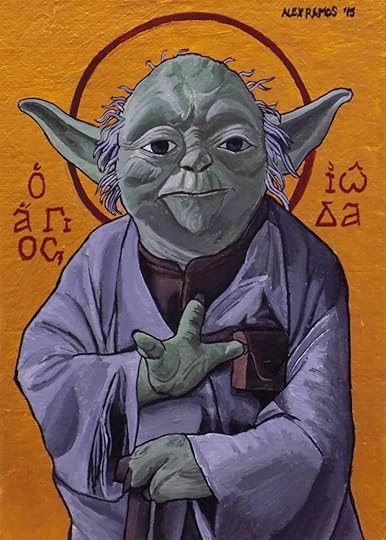
March 27, 2022
Economic Aspects of Reading

Last June, I participated in a colloquium with Ludwig-Maximilians Universität. This August, working again with Jan Heilmann, I'm helping to put together an international symposium at Ludwig-Maximilans Universität: "Economic Aspects of Reading."
See the image below and stay tuned for more details:
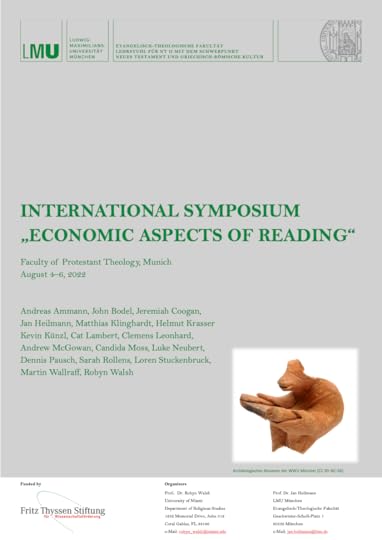
Myth Vision: Who Wrote the Gospels?

Derek Lambert invited me back for a live session on Myth Vision to talk about the authorship of the gospels. Here's the thing, though: Derek has turned me into one of the four horsemen (horsepersons?) of the apocalypse!
Don't believe me? Check it out:

Yes, that's me on the right, giant scythe in hand.
As always, chatting with Derek was a great deal of fun, and I thank him for bringing me on again. You can access a recording of the episode below! (You can also check out my previous appearance on Myth Vision.)
Robyn Faith Walsh's Blog
- Robyn Faith Walsh's profile
- 22 followers



